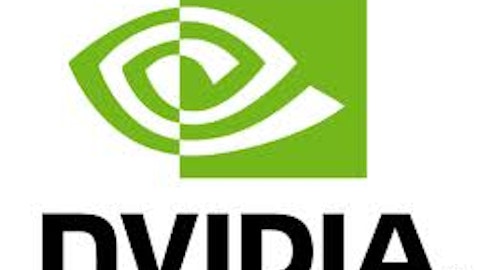I’ve said it before and I’ll say it again, valuation will always matter. I’ll continue to say this even though I know that people who scream that ugly “valuation” word to high-flying growth stocks are often relegated to straitjackets. Nevertheless, salesforce.com, inc. (NYSE:CRM)‘s ascent to the top of the cloud discussion doesn’t justify its gaudy stock price. It didn’t make sense three years ago and it still doesn’t make sense today.
What are we really paying for?
While this company has done a good job building itself into a leading software as a service — or SaaS — entity, salesforce.com, inc. (NYSE:CRM) has not differentiated itself from the competition — at least not in a meaningful way. And with a forward price-to-earnings ratio of 73, salesforce.com, inc. (NYSE:CRM) is trading at a valuation that is six times the expected earnings of Oracle Corporation (NASDAQ:ORCL) and nine times that of Microsoft Corporation (NASDAQ:MSFT). Forward P/E uses estimated earnings to compare relative value among companies in the same industry.

What’s more, the company still struggles with weak profit leverage, as evidenced by a 32 basis-point year-over-year decline in non-GAAP operating margin. Likewise, full-year operating income of $357 million was a bit soft. Granted, it is 36% higher than fiscal year 2012. But it translated to a non-GAAP operating margin of just 11.7%. By contrast Oracle Corporation (NASDAQ:ORCL) posted a full-year operating margin of almost 40% and Microsoft posted 35%.
To be fair, salesforce.com, inc. (NYSE:CRM) has not arrived at the “mature” status of either Oracle or Microsoft. The operating margin performance could be due to the aggressive growth plans, which includes acquisitions. But the company’s practice of stock-based compensation for its executives can use a reform. This practice has eaten into profitability. While it’s not unusual for growth companies to adopt this policy, investors have to wonder how long this can last, and what exactly are they paying for?
The competition is not going away
There’s the misconception that the attention that Salesforce generates from articles like this means that the company must be beating up on the competition. That’s not entirely the case. While the company is indeed planting its feet firmly into the cloud, Microsoft has not been sleeping at the wheel. And I think Microsoft can become a true threat once Office Live is fully embraced.
Customers will resist the urge to jump on a different platform if Microsoft can sell the benefits of seamless integration with Windows and Office. Plus, even Oracle is also a real threat in the SaaS and cloud environments. And Oracle’s recent acquisitions, which included Acme Packet, Inc. (NASDAQ:APKT), have created more separation between the two companies. For now, Salesforce investors are stuck trying to decipher how much value Acme Packet has brought Oracle. But it’s about new addressable markets.
Plus, Oracle Corporation (NASDAQ:ORCL) will be able to use Acme Packet’s 40% share in the session border control market as an advantage to further its cloud offerings, which will culminate as a one-stop-shop solution. salesforce.com, inc. (NYSE:CRM) does not have this advantage. And while International Business Machines Corp. (NYSE:IBM) is not seen as a strong SaaS threat today, the company looked strong in the recent quarter — posting an 18% sequential increase in revenue, helped by a 3% jump in its software business.
However, International Business Machines Corp. (NYSE:IBM) should see a slight bump in service revenue once IT spending fully recovers. And with margin pressure already an issue for Salesforce, IBM can get aggressive. It remains to be seen if International Business Machines Corp. (NYSE:IBM) will choose this route since it has placed a focus on higher-margin businesses, but it should be a concern for Salesforce.
Can Salesforce overcome doubt?
Anything’s possible. And whether or not these shares make sense today, Salesforce is certainly going to remain interesting. And the company has no plans to change. Salesforce knows the Street has an insatiable appetite for growth and it plans to feed that hunger for as long as it can. But investors have to be careful in weighing too much on the top line.
Weak operating leverage is one area of concern. And for this stock to make any sense, Salesforce has to differentiate itself from rivals. And so far, it has not shown that it can do that — not to the extent that it supports such a demanding valuation.
The article salesforce.com Still Doesn’t Make Sense originally appeared on Fool.com and is written by Richard Saintvilus.
Fool contributor Richard Saintvilus has no position in any stocks mentioned. The Motley Fool recommends Acme Packet and Salesforce. The Motley Fool owns shares of International Business (NYSE:IBM) Machines, Microsoft, and Oracle.
Copyright © 1995 – 2013 The Motley Fool, LLC. All rights reserved. The Motley Fool has a disclosure policy.





